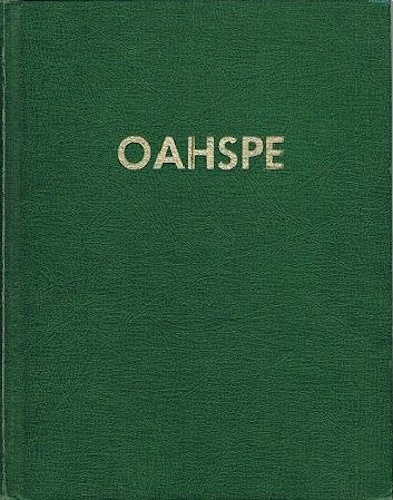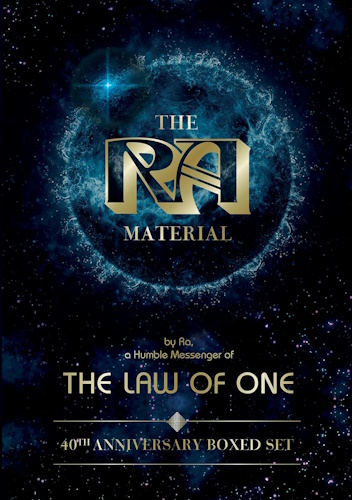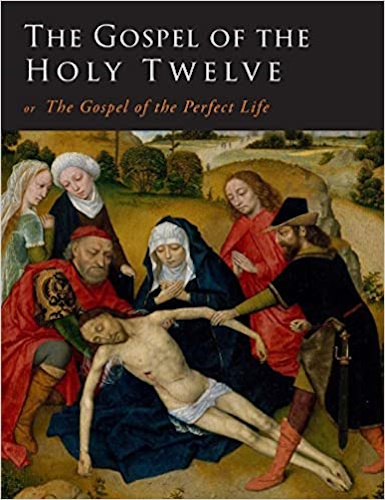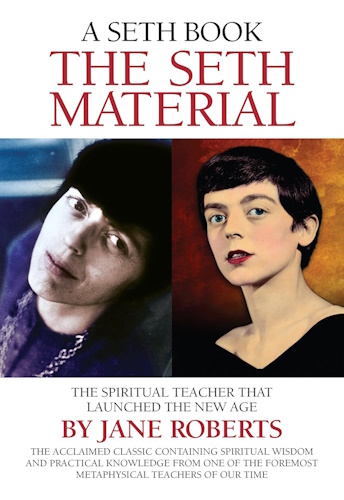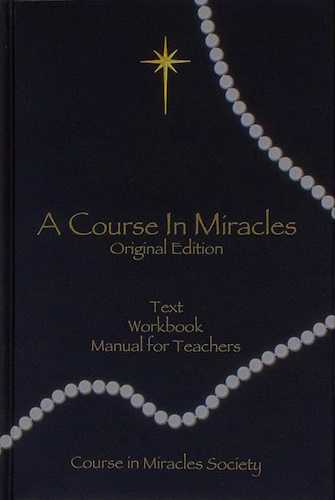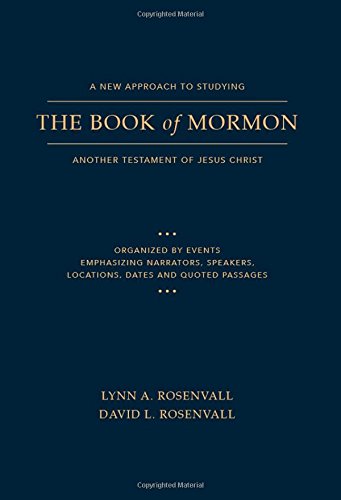
![]()
![]()
Book of Wars Against Jehovih
Chapter XLVI
1. TWO vice-Gods had Sudga, Brihat and Visvasrij. Next to these, Sudga's heavenly chief marshal Atma, who had four thousand marshals under him, and equally divided amongst them to command, one thousand million heavenly warring angels. Atma had authority over thirty thousand generals and captains, to whom were allotted two thousand million angels.
2. Chief of the heavenly generals were: Shahara, Vasyam, Suchchi, Dev, Nasakij, Tvara, Watka, Shan, Dorh, Hudhup, Nikish, Hajara, Hwassggarom,
p. 438
Viji, Yatamas, Brahma, Goska, Fulowski, M'Duhitri, Yaya-mich-ma, Hijavar, Duth, Lob-yam, Hi-gup and Vow-iska. And these falsely assumed the names of the ancient Gods and Lords of thousands of years before.
3. Sudga had said to them: That my age may be magnified before the newborn in heaven, ye shall also magnify your own names by taking the names of Gods and Lords who are revered in heaven and earth, for all things are free unto you. But into none others do I give privilege to choose the names of the ancients.
4. Sudga then made the following his Private Council: Plow-ya, Vazista, Kiro, Cpen-ista, Visper, E-shong, Bog-wi, Lowtha, Brihat, Gai-ya, Sa-mern, Nais-wiche, Yube, Sol, Don, Mung-jo, Urvash, Cpenta-mainyus, Vazista, and Vanaiti; and to each of them ten thousand attendants.
5. Then Sudga made two great captains, Varsa and Baktu, and he said unto them: Two thousand million angels have I allotted to go down to the earth, to the land of Vind'yu, to subdue mortals and have dominion over them permanently, and I divide the two thousand million betwixt ye twain. But all other angels shall remain in my heavenly kingdom and work for me, and embellish it, and beautify my heavenly cities, especially my holy capital.
6. Now, when ye twain are permanent on the earth, and secured in the temples and oracles, ye shall survey all the lands of Vind'yu, and the cities, large and small, and all the people therein. And, behold, all men shall be subdued unto my two names, Sudga and Dyaus; and when a city standeth, wherein the people worship any other Gods or Lords, that city shall ye destroy, and all the people therein. City against city shall it be, man against man; for as I am the all highest God of heaven, so will I be the God of earth, and its Lord. And ye twain, in finding two cities to be destroyed, shall divide, one going with his angel warriors to one city, and the other to the other city; and ye shall inspire them against each other unto death; and when they are laid low, ye shall bring into the place, to inhabit it, my worshippers.
7. Thus descended to the earth the two destroying captain Gods, Varsa and Baktu, with their two thousand million angel warriors. And they spread out about over the land of Vind'yu, where were many kingdoms and thousands of cities; and they came to mortals asleep or awake, and inspired them to havoc and destruction, for Sudga's sake.
8. And there were laid in ruins, in twelve years, forty thousand cities, of which thirty-seven were great cities. And chief of these were Yadom, Watchada, Cvalaka, Hoce-te, Hlumivi, Ctdar and Yigam, each of which contained more than one million souls, and some of them two millions.
9. In all of these there were places of great learning, and schools, and temples of sacrifice (worship). In Ctdar the roof of the temple was made of silver and copper and gold; and it had one thousand columns of polished stone, and five hundred pillars to support the roof. The walls were covered with tapestry, painted with written words and histories of heaven and earth, and of the Gods and Lords and Saviors of the ancients. Within the temple were seven altars of sacrifice, and four thousand basins of holy water for baptismal rites. Within the walls of the temple were niches for five hundred priests, for the confession of sins, and for receiving the money and cloth and fruits of the earth, contributed by the penitent for the remission of their sins. Through the central passage within the temple drove the king in his golden chariot, when he came for sacrifice; and the floor of this passage was laid with silver and gold.
10. In the centre of the temple floor was a basin filled with water, and the size of the basin was equal to twenty lengths of a man. In the middle of the basin was a fountain throwing up water. And on the east and west and north and south sides of the basin were four pillars of polished stone, with stairs within them; and the tops of these pillars were connected by beams of inlaid wood of many colors, polished finely, which were called the Holy Arch of Suh-hagda. On the summit of the arch was a small house called the Voice of the Oracle, for here sat the king's interpreter of heaven and earth, the reader of visions. And the spirits of the dead appeared in the spray of the fountain, sometimes as stars of light and sometimes in their own forms and features, and were witnessed by the multitude.
11. Within each of the five hundred pillars was a sacred chamber, for benefit of the priests communing with angels. In the east pillar was an opening from top to bottom, a slatway so the multitude could see through the pillar, which was hollow its entire height. This was occupied by te king's high priest or priestess, as the case might be, and this person had attained to
p. 439
adeptship, so that the angels could carry him up and down within the pillar, even to the top thereof, which was equal to fifty lengths of a man. And the multitude thus beheld him ascending and descending.
12. In the west pillar was the library of the temple, which contained a history of its important events for a period of eight hundred years; of the priest and high priests, and of the kings of the city.
13. Next to the Temple, which was called Tryista, stood the House of Learning, where congregated the wise men and women, skilled in philosophy and music and astronomy and mineralogy. The House was made of polished stone and wood interlocked, and in the front with one hundred and forty columns of polished stone and wood. Within the house were the skins and bones of thousands of creatures, ancient and modern, which wre classified and named; and with these were books of philosophy and history, all of which were free to the public one day in seven. Next to the House of Learning was the Temple of Death, dedicated to all kinds of battles, battles betwixt lions and men, tigers and men, and betwixt lions and tigers, and elephants, and betwixt man and man. And so great was the Temple of Death that its seats could accommodate three hundred thousand men, women and children. The temple was circular, and without a roof over the arena. But the greatest of all buildings in Ctdar was the king's palace, commonly called TEMPLE OF THE SUN. This was also made of polished stone, and on the four sides had eight hundred columns of polished stone; and next to the columns were fifty pillars, on every side connected by arches twelve lengths high, whereon rested a roof of wood and stone; and yet on this was surmounted another row of four hundred columns of polished wood, inlaid with silver and gold, and these were connected to the top by other arches ten lengths high, and on these another roof, and on the top of this a dome covered with gold and silver and copper. From the arena to the dome the height was twenty-eight lengths, and the base of the dome across was sixteen lengths. To enter the temple from the west was a chariot roadway, so that the king and his visitors could drive up into the arena of the palace in their chariots. But as for the interior of the king's palace, a whole book might be written in the description thereof, and yet not tell half its richness and beauty and magnificence.
14. Besides these great buildings there were four hundred and fifty Temples of Darkness, dedicated to the spirits of the dead. These were without any opening save the door; and when the communers were within, and the door shut, they were without light. In the midst of these temples, spirits and mortals congregated, and the spirits taught mortals the art of magic; of making seeds grow into trees and flowers; of producing serpents by force of the will; of carrying things through the air; casting sweet perfumes, and casting foul smells; of casting virus to one's enemy, and inoculating him with poison unto death; of finding things lost, of bringing money to the poor, and flowers and food to the sick; of entering the dead sleep, and of becoming unconscious to poin by force of the will.
15. Nor could any man or woman attain to be a priest in the Temple of Tryista until he mastered all the degrees in the Temples of Darkness.
16. The angels of Sudga decided to destroy this city; and, accordingly, they inspired a war betwixt it and the city of Yadom, which was second unto it in magnificence, and possessed of temples and palaces like unto it also. Yea, but to describe one of these great cities was to describe the other, as to mortal glory. For seven hundred years had these cities lain in peace with each other, half a day's journey apart, on the great river, Euvisij, in the Valley of Rajawichta.
17. And the captain God, Varsa, chose one city, and the captain God, Bactu, chose the other city; and each of them took from their thousand million angel warriors a sufficient number, and inspired the two great cities unto everlasting destruction. Even as mortals turn savage beasts into an arena, to witness them tear and flay each other, even so sat these captain Gods in their heavenly chariots, witnessing the two great cities in mortal combat. And when one had too much advantage, the angel hosts would turn the tide, or let them rest awhile; then urge them to it again, holding the game in such even balance as would insure the greatest possible havoc to both.
18. Eight years these battles lasted; and hundreds of thousands of men, women and children were slain; and when thus the great cities were reduced, the Gods let loose THE BAND OF DEATH, whose angel office was to carry poison virus from the rotten dead and inoculate the breath of the living; and then in desperate madness make mortals
p. 440
fire their cities, to keep them from falling into other hands. And in eight years the great cities, with their mighty temples, were turned to ruin and to dust; and of the people left, only the ignorant few, starving, helpless wanderers, could tell the tale of what had been.
19. Sudga had said: All knowledge amongst mortals is inimical to the Gods in heaven; therefore I will destroy all knowledge on the earth. And this was the same doctrine maintained by Te-in, God of Jaffeth.
20. In such manner proceeded the captain Gods of Sudga over all the land of Vind'yu, laying low all kingdoms, and cities, and places of sacrific, and places of learning. And in one hundred years the mighty people of Vind'yu were reduced to beggary, and to scattered tribes of wanderers. The great canals were destroyed, and the upper and lower country became places of famine and barrenness. And in the valleys and on the mountains, in the abandoned fields and in the wildernesses, lay the bones and skulls of millions of the human dead. And lions and tigers came and prowled about in the ruined walls of the fallen temples and palaces. Nor were there left in all the land a single library, or book, or the art of making books, or anything to show what the great history had been.
21. Thus perished the Vedic language, the language of song and poetry, and of great oratory. Save in a small degree, such as was preserved by the remnant of Faithists who had escaped through all these generations, still in secret worshipping the Great Spirit.
22. Hear ye next of Osiris and his dominions, and of Arabin'ya, and Parsi'e, and Heleste:
-
Urantia Book, 44:0.11 - The Celestial Artisans
Never in your long ascendancy will you lose the power to recognize your associates of former existences. Always, as you ascend inward in the scale of life, will you retain the ability to recognize and fraternize with the fellow beings of your previous and lower levels of experience. Each new translation or resurrection will add one more group of spirit beings to your vision range without in the least depriving you of the ability to recognize your friends and fellows of former estates.
-
Princess Bride 1987 Wallace Shawn (Vizzini) and Mandy Patinkin (Inigo Montoya)
Vizzini: HE DIDN'T FALL? INCONCEIVABLE.
Inigo Montoya: You keep using that word. I do not think it means what you think it means. -
Urantia Book, 117:4.14 - The Finite God
And here is mystery: The more closely man approaches God through love, the greater the reality -- actuality -- of that man. The more man withdraws from God, the more nearly he approaches nonreality -- cessation of existence. When man consecrates his will to the doing of the Father's will, when man gives God all that he has, then does God make that man more than he is.
-
Urantia Book, 167:7.4 - The Talk About Angels
"And do you not remember that I said to you once before that, if you had your spiritual eyes anointed, you would then see the heavens opened and behold the angels of God ascending and descending? It is by the ministry of the angels that one world may be kept in touch with other worlds, for have I not repeatedly told you that I have other sheep not of this fold?"
-
Urantia Book, Foreword - 0:12.12 - The Trinities
But we know that there dwells within the human mind a fragment of God, and that there sojourns with the human soul the Spirit of Truth; and we further know that these spirit forces conspire to enable material man to grasp the reality of spiritual values and to comprehend the philosophy of universe meanings. But even more certainly we know that these spirits of the Divine Presence are able to assist man in the spiritual appropriation of all truth contributory to the enhancement of the ever-progressing reality of personal religious experience—God-consciousness.
-
Urantia Book, 1:4.3 - The Mystery Of God
When you are through down here, when your course has been run in temporary form on earth, when your trial trip in the flesh is finished, when the dust that composes the mortal tabernacle "returns to the earth whence it came"; then, it is revealed, the indwelling "Spirit shall return to God who gave it." There sojourns within each moral being of this planet a fragment of God, a part and parcel of divinity. It is not yet yours by right of possession, but it is designedly intended to be one with you if you survive the mortal existence.
-
Urantia Book, 1:4.1 - The Mystery Of God
And the greatest of all the unfathomable mysteries of God is the phenomenon of the divine indwelling of mortal minds. The manner in which the Universal Father sojourns with the creatures of time is the most profound of all universe mysteries; the divine presence in the mind of man is the mystery of mysteries.
-
Urantia Book, 1:4.6 - The Mystery Of God
To every spirit being and to every mortal creature in every sphere and on every world of the universe of universes, the Universal Father reveals all of his gracious and divine self that can be discerned or comprehended by such spirit beings and by such mortal creatures. God is no respecter of persons, either spiritual or material. The divine presence which any child of the universe enjoys at any given moment is limited only by the capacity of such a creature to receive and to discern the spirit actualities of the supermaterial world.
-
Urantia Book, 11:0.1 - The Eternal Isle Of Paradise
Paradise is the eternal center of the universe of universes and the abiding place of the Universal Father, the Eternal Son, the Infinite Spirit, and their divine co-ordinates and associates. This central Isle is the most gigantic organized body of cosmic reality in all the master universe. Paradise is a material sphere as well as a spiritual abode. All of the intelligent creation of the Universal Father is domiciled on material abodes; hence must the absolute controlling center also be material, literal. And again it should be reiterated that spirit things and spiritual beings are real.
-
Urantia Book, 50:6.4 - Planetary Culture
Culture presupposes quality of mind; culture cannot be enhanced unless mind is elevated. Superior intellect will seek a noble culture and find some way to attain such a goal. Inferior minds will spurn the highest culture even when presented to them ready-made.
-
Urantia Book, 54:1.6 - True And False Liberty
True liberty is the associate of genuine self-respect; false liberty is the consort of self-admiration. True liberty is the fruit of self-control; false liberty, the assumption of self-assertion. Self-control leads to altruistic service; self-admiration tends towards the exploitation of others for the selfish aggrandizement of such a mistaken individual as is willing to sacrifice righteous attainment for the sake of possessing unjust power over his fellow beings.
-
Urantia Book, 54:1.9 - True And False Liberty
How dare the self-willed creature encroach upon the rights of his fellows in the name of personal liberty when the Supreme Rulers of the universe stand back in merciful respect for these prerogatives of will and potentials of personality! No being, in the exercise of his supposed personal liberty, has a right to deprive any other being of those privileges of existence conferred by the Creators and duly respected by all their loyal associates, subordinates, and subjects.
-
Urantia Book, 54:1.8 - True And False Liberty
There is no error greater than that species of self-deception which leads intelligent beings to crave the exercise of power over other beings for the purpose of depriving these persons of their natural liberties. The golden rule of human fairness cries out against all such fraud, unfairness, selfishness, and unrighteousness.
